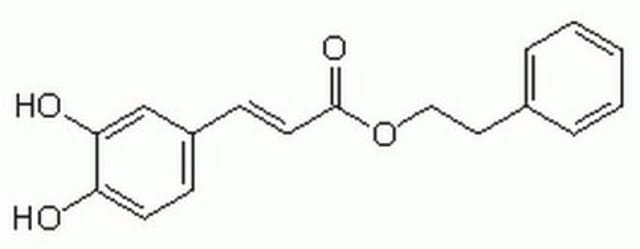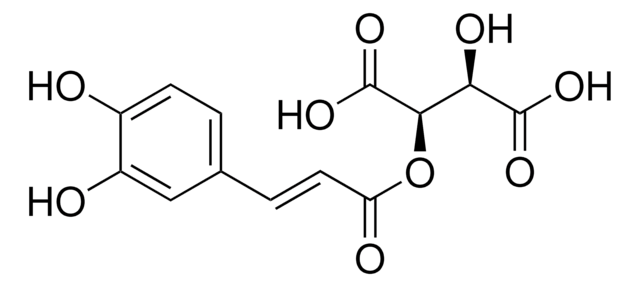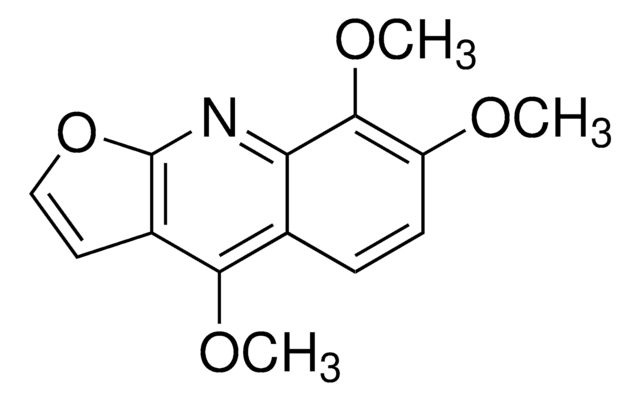C8221
Caffeic acid phenethyl ester
≥97% (HPLC), powder
Sinónimos:
CAPE
Seleccione un Tamaño
603,00 €
Seleccione un Tamaño
About This Item
603,00 €
Productos recomendados
origen biológico
synthetic
Ensayo
≥97% (HPLC)
Formulario
powder
condiciones de almacenamiento
protect from light
color
off-white
solubilidad
ethyl acetate: 50 mg/mL
DMSO: soluble
ethanol: soluble
temp. de almacenamiento
−20°C
cadena SMILES
Oc1ccc(\C=C\C(=O)OCCc2ccccc2)cc1O
InChI
1S/C17H16O4/c18-15-8-6-14(12-16(15)19)7-9-17(20)21-11-10-13-4-2-1-3-5-13/h1-9,12,18-19H,10-11H2/b9-7+
Clave InChI
SWUARLUWKZWEBQ-VQHVLOKHSA-N
Información sobre el gen
human ... NFKB2(4791)
Aplicación
Acciones bioquímicas o fisiológicas
Características y beneficios
Código de clase de almacenamiento
11 - Combustible Solids
Clase de riesgo para el agua (WGK)
WGK 3
Punto de inflamabilidad (°F)
Not applicable
Punto de inflamabilidad (°C)
Not applicable
Equipo de protección personal
dust mask type N95 (US), Eyeshields, Gloves
Elija entre una de las versiones más recientes:
¿Ya tiene este producto?
Encuentre la documentación para los productos que ha comprado recientemente en la Biblioteca de documentos.
Los clientes también vieron
Artículos
Chronic inflammation is an underlying factor in the development and progression of many of the chronic diseases of aging, such as arthritis, atherosclerosis, diabetes, and cancer.
We offer a variety of small molecule research tools, such as transcription factor modulators, inhibitors of chromatin modifying enzymes, and agonists/antagonists for target identification and validation in gene regulation research; a selection of these research tools is shown below.
Filtros activos
Nuestro equipo de científicos tiene experiencia en todas las áreas de investigación: Ciencias de la vida, Ciencia de los materiales, Síntesis química, Cromatografía, Analítica y muchas otras.
Póngase en contacto con el Servicio técnico










